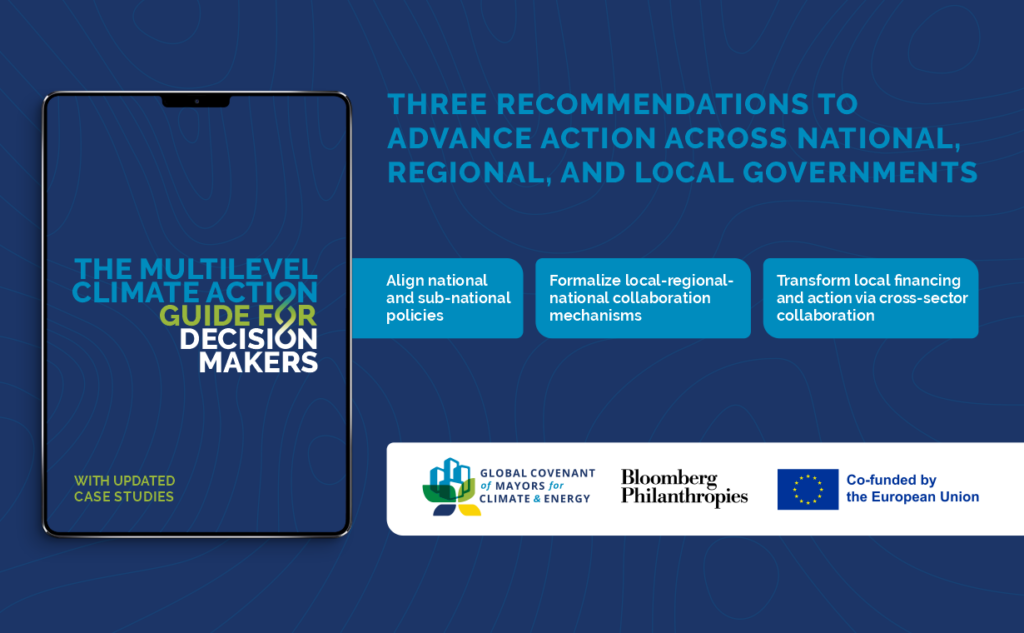Climate disasters are already affecting local and regional communities, as well as their capacity for lifesaving service provision and local solutions. The climate crisis is as local as it is global, affecting everyone – with disproportionate impacts on the poor, marginalized, and vulnerable among us. Local and regional governments are on the frontlines, and reinforcements are needed – fast.
Following the launch of the Coalition for High Ambition Multilevel Partnerships (CHAMP) at the Local Climate Action Summit at COP28 in Dubai, building on the latest insights and good practices from the Global Covenant of Mayors alliance, and developed in partnership with WRI Ross Center for Cities (WRI), the Multilevel Climate Action Guide for Decision-makers highlights three recommendations that can catalyze governance and action across levels of government:
- Align national and subnational policies to create cost-effective synergies and maximize the impact of climate action;
- Formalize collaboration mechanisms between local, regional, and national governments; and
- Transform local financing and action through diverse coalitions of civil society, business, and academia.
The Multilevel Climate Action Guide for Decision Makers also features five key enablers for coordinated action across levels of government: vertical and horizontal collaboration, multi-actor capacity, unlocking finance, accelerating research and innovation, and civil society & civic engagement. These enablers, driven by evidence found through the Multilevel Climate Action Playbooks, can help local, regional, and national governments realize the three overarching recommendations.
The recommendations are also accompanied by more than 100 examples, presented in the Multi-level Governance Atlas. Supported by Bloomberg Philanthropies, the Atlas showcases where multilevel governance is already taking flight in 52 countries around the world – demonstrating that the alignment of planning and implementation of national, regional and local policies on climate and sustainability can usher progress towards a resilient and low-emission future.
